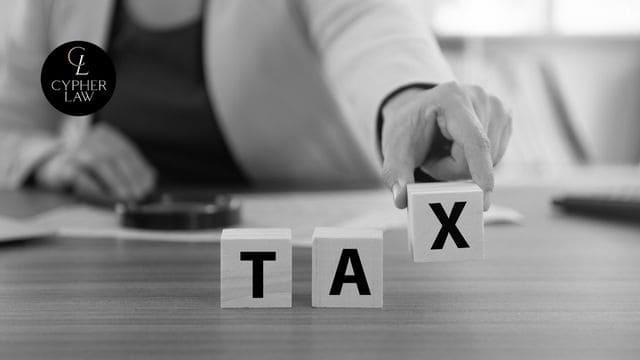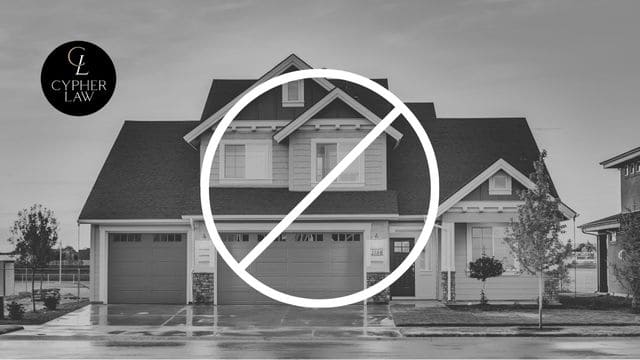Here is What You Need to Know on the Foreign Buyers Ban and The Toronto Vacant Tax 2023 – Cypher Law
Table of Contents
The Foreign Buyers Ban is a policy that has been implemented in some regions to restrict the purchase of real estate by non-citizens or non-permanent residents. The goal of this policy is to help stabilize housing markets and make homes more affordable for local residents. The ban is typically implemented by governments through legislation or regulations and can take various forms, such as outright prohibitions on foreign ownership or restrictions on the percentage of foreign ownership in a given area.
To learn more or to contact us for all your Real Estate Legal needs, feel free to reach out to us!
Phone: 289-816-CYPR (2977)
Fax: 289-312-CYPR (2977)
Office: 755 Queensway East, Suite 202, Mississauga, ON
Foreign Home Buyers Tax Vs. Foreign Home Buyers Ban

On June 23, 2022, the Prohibition on the Purchase of Residential Property by Non-Canadians Act was enacted to address Canada’s escalating housing shortage.
With minor exceptions for international students and temporary residents, the restriction prohibits non-citizens, non-permanent residents, and foreign businesses from buying properties in Canada. A $10,000 fine and the potential sale of the offending property awaits those who may breach the ban.
The Foreign Buyers Ban is not a new policy for some, many countries have implemented such a policy for decades.
But in Canada, there is also a Foreign Buyers Tax also known as the NRST (Non Resident Speculation Tax) and it has been implemented in British Columbia, Ontario, and Quebec.
The Non-Resident Speculation Tax (NRST) in Ontario is a 20% tax on any residential property bought throughout the province. Non-Canadian citizens and non-permanent residents who purchase a home in Ontario are subject to this tax.
British Columbia was the first province to implement a foreign buyers tax in 2016, which added a 15% property transfer tax on purchases by foreign buyers in the Greater Vancouver area. This policy was implemented in response to a surge in housing prices in the area, which many attributed to an influx of foreign buyers.
Ontario followed British Columbia’s lead and implemented its own foreign buyers tax in 2017, which added a 20% tax on purchases by foreign buyers in the Greater Golden Horseshoe region, which includes Toronto. The tax was intended to help cool the red-hot housing market in the area, which had seen prices skyrocket in recent years.
Quebec has also implemented a foreign buyers ban in the Montreal area, which added a 1% tax on purchases by foreign buyers in the city. The tax was intended to help stabilize housing prices and make homes more affordable for local residents.
A Look Into the Publics View

The Foreign Buyers Ban has been met with mixed reactions. Supporters argue that it helps stabilize housing markets by curbing demand from foreign buyers, which can drive up prices and make it difficult for local residents to afford a home. They also argue that the ban helps ensure that local residents have access to housing and that property ownership is not concentrated in the hands of a few foreign buyers.
On the other hand some debate that the Foreign Buyers Ban is a form of protectionism that unfairly targets foreign buyers and can negatively impact the economy. They imply that foreign buyers bring needed capital into the housing market and that the ban can discourage foreign investment and hurt local businesses.
What are your thoughts? Feel free to comment under this blog post!
The Toronto Vacant Tax

The Toronto Vacant Tax, also known as the Empty Homes Tax, is a tax imposed on homeowners whose properties are deemed to be unoccupied for at least six months of the year. The tax is intended to encourage homeowners to put their empty properties back into use and help increase the supply of rental housing in the city. The tax was implemented in 2017, and it is 1% of the property value of the home.
The Toronto Vacant Tax has also been met with mixed reactions. Supporters say that it helps increase the supply of rental housing by encouraging homeowners to put their empty properties back into use. Some also believe that it can help curb housing speculation and stabilize housing prices.
Critics, on the other hand, believe that the Toronto Vacant Tax is a form of government overreach that unfairly targets homeowners and can negatively impact the economy. They argue that the tax can discourage investment in the housing market and hurt local businesses.
Both the foreign buyers ban and the vacant tax have been implemented in some regions in Canada and both have been met with mixed reactions. Supporters argue that they will help stabilize housing markets while others argue they will negatively impact the economy. It is important to note that both policies are still relatively new, and their long-term effects are not yet fully known.
Final Thoughts
In conclusion, it is important for investors and homeowners to be aware of the Foreign Buyers Ban and the Toronto Vacant Tax, especially if they are considering investing in or purchasing property in a region where these policies have been implemented. The policies are intended to help stabilize housing markets and make homes more affordable for local residents, but they can also have negative consequences for foreign buyers and property owners. It is important to consider the potential impacts of these policies on your investment or property ownership before making a decision. Additionally, it is important to stay informed about any changes or updates to these policies, as they may be subject to change or revision in the future.
It is also worth noting that there may be other regulations or policies in place that could affect foreign buyers or property owners in Canada. For example, certain regions may have stricter zoning laws or building codes that could limit the types of properties that can be purchased or developed. Additionally, there may be restrictions on the types of financing or mortgages available to foreign buyers.
In order to stay informed and make informed decisions about property ownership or investment, it is important to consult with a real estate lawyer or other professional who is familiar with the laws and regulations in the region you are considering. They can provide guidance and advice on the potential impacts of the foreign buyers ban and the Toronto vacant tax, as well as any other relevant laws or regulations.
Cypher Law is the BEST Real Estate Law Firm in Ontario, specializing in many practice areas as well.
At Cypher Law, we make sure to help guide our site visitors and clientele with up to date information of the Canadian Real Estate and Mortgage Market as well, helping you make a better informed decision with a trustworthy and helpful attorney by your side!
For all your legal needs contact us at Cypher Law Today or visit us in person!
To learn more or to contact us for all your Real Estate Legal needs, feel free to reach out to us!
Phone: 289-816-CYPR (2977)
Fax: 289-312-CYPR (2977)
Office: 755 Queensway East, Suite 202, Mississauga, ON

Leave a Reply